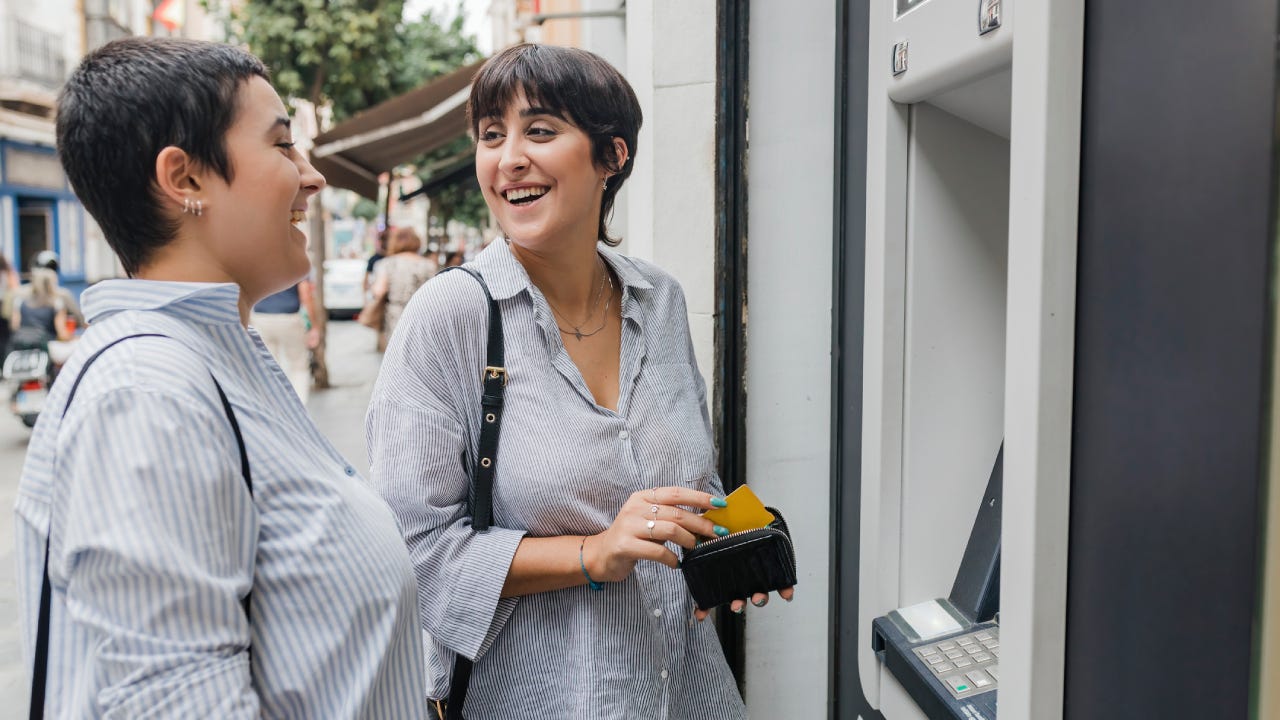LGBTQ+ friendly banking: How to find inclusive banks that support the LGBTQ+ community

Key takeaways
- LGBTQ+ friendly banking addresses unique financial challenges like name changes, discrimination in lending and specialized financial needs.
- Key features to look for include non-discrimination policies, chosen name options on cards, employee resource groups and community support.
- Major LGBTQ+ supportive banks include Amalgamated Bank, BMO Harris, Capital One, Chase and Citibank, each offering specific inclusive features.
When Billie Simmons needed to change her name on her bank card, she visited the financial institution to make the request. For some, it would have been merely an inconvenience, but for Simmons, it effectively meant outing herself as a trans woman to a bank employee.
Even after securing a new card with her name, Simmons was unable to update her username to access her digital account. “Every time I logged into my banking platform, I had to deadname myself, which is to use the name that I used before I transitioned,” Simmons says. These experiences highlight why LGBTQ+ friendly banking services are essential for the estimated 20+ million LGBTQ+ adults in the U.S.
LGBTQ+ friendly features to look for
When evaluating the LGBTQ+ friendliness of a financial institution, some features and policies to consider include:
1. Non-discrimination policies: Look for institutions that have explicit and forward-thinking policies prohibiting discrimination based on sexual orientation and gender identity. These policies should be clearly stated and encompass all services, including lending, account opening, and employment.
2. Chosen name options: The ability to use your chosen name on debit and credit cards without requiring a legal name change is crucial for transgender and gender-nonconforming individuals.
3. Employee resource groups: These groups provide a platform for LGBTQ+ employees to connect, share experiences, and contribute to creating a better-adapted environment for both employees and customers.
4. Digital platform inclusivity: Modern banking systems should accommodate name changes across all digital platforms, avoiding situations where customers must use their former names to access accounts.
5. Support for LGBTQ+ community organizations and events: LGBTQ+ friendly banks actively participate in and sponsor LGBTQ+ events and initiatives, whether donating to related causes, funding research on LGBTQ+ health disparities, or sponsoring community workshops.
6. Cultural competency training: Staff training that helps employees understand unique LGBTQ+ financial needs, from transitioning expenses to chosen family estate planning considerations.
Banks and credit unions that are LGBTQ+ friendly
If you’re looking to open an account with a financial institution that supports LGBTQ+ people and reflects that in its features and policies, here are some options to consider.
Banks
Amalgamated Bank: Known for its commitment to social and environmental issues, Amalgamated Bank has clear policies to support LGBTQ+ customers and employees. The bank has a Pride Employee Resource Group, includes gender-affirming surgery and hormone therapy in its staff insurance policy, and has signed on to LGBTQ-related causes, including the Equality Act.
BMO Harris: In 2021, BMO Harris launched its Zero Barriers to Inclusion program, with the goal of having at least 3 percent of its workforce identify as LGBTQ+ individuals by 2025. It was also the first bank to offer a debit card that allows customers to use their chosen name on the front of their cards without a legal name change.
Capital One Bank: Capital One sponsors numerous events and organizations supporting the LGBTQ+ community. The bank donated over $150,000 to the Trevor Project, a nonprofit focusing on suicide prevention among LGBTQ+ people, for Pride Month. As of 2021, 3.7 percent of its employees identify as LGBTQ+.
JPMorgan Chase: Chase has established comprehensive LGBTQ+ support through multiple initiatives. The bank maintains Pride Business Resource Groups across its operations and offers domestic partner benefits. Chase has been recognized by the Human Rights Campaign’s Corporate Equality Index and actively sponsors LGBTQ+ community events. The bank also provides employee training on LGBTQ+ inclusion and has clear non-discrimination policies covering sexual orientation and gender identity.
Citibank: Citi has recognized and offered benefits to same-sex partners before they were legally recognized. In 2021, Citi signed the Business Statement Opposing Anti-LGBTQ+ State Legislation proposed by the Human Rights Campaign. It also offers easy services for customers to change the name on their debit or credit cards to their preferred name.
Credit unions
Element Federal Credit Union: Based in West Virginia with nationwide online banking access, Element FCU works with members to print any debit or credit card with their preferred name. When a new account is opened, the credit union donates $50 to Rainbow Pride, a nonprofit supporting the LGBTQ+ community of West Virginia. An additional $0.05 is donated for every debit card swipe.
Superbia Credit Union: Superbia is designed specifically for LGBTQ+ individuals. Its stated mission is “to provide discrimination-free banking, life and health insurance, and money management services that fully consider the needs of our LGBTQ community.” Beyond offering standard banking products, Superbia manages a charity called Superbia Foundation that funds LGBTQ+ research and programs—10 percent of the credit union’s revenue is donated directly to the foundation.
Why is LGBTQ-friendly banking important?
In a 2018 study by Experian, 62 percent of LGBTQ+ respondents said they experienced financial issues because of their sexuality or gender identity. While progress has been made in terms of LGBTQ+ rights and acceptance, LGBTQ+ individuals still have unique needs and concerns.
Discrimination in financial services: A 2019 study published by the National Academy of Sciences analyzed extensive mortgage lending data and found that same-sex couples were about 73 percent more likely to be denied a mortgage application than heterosexual couples. LGBTQ+ individuals may face limited access to loans and mortgages due to discrimination or bias.
Specialized financial needs: LGBTQ+ individuals may require specialized financial products and resources, such as adoption financing for same-sex couples, medical expense support for gender-affirming healthcare, estate planning for chosen family structures and financial support during transition periods.
Cultural competency requirements: There’s a level of cultural understanding needed to address concerns that differ from the general population. Challenges related to legal name changes, transitioning expenses or chosen family estate planning require staff training and institutional awareness.
Economic impact: The LGBTQ+ community represents significant economic power, with an estimated combined buying power of roughly $1 trillion. Financial institutions that fail to serve this market inclusively miss substantial business opportunities while potentially causing harm to community members.
Money tip: Open a savings account at an LGBTQ+ friendly institution to start building your relationship before applying for larger products like mortgages or business loans.
Bottom line
For the LGBTQ+ community, access to non-discriminatory and supportive banking services is vital for financial stability, safety, and the ability to achieve life goals. By choosing an LGBTQ+ friendly bank or credit union, individuals can align their financial choices with their values and contribute to ensuring that all people are treated equally in the financial services industry.
Ready to find an inclusive banking partner?
Why we ask for feedback Your feedback helps us improve our content and services. It takes less than a minute to complete.
Your responses are anonymous and will only be used for improving our website.









